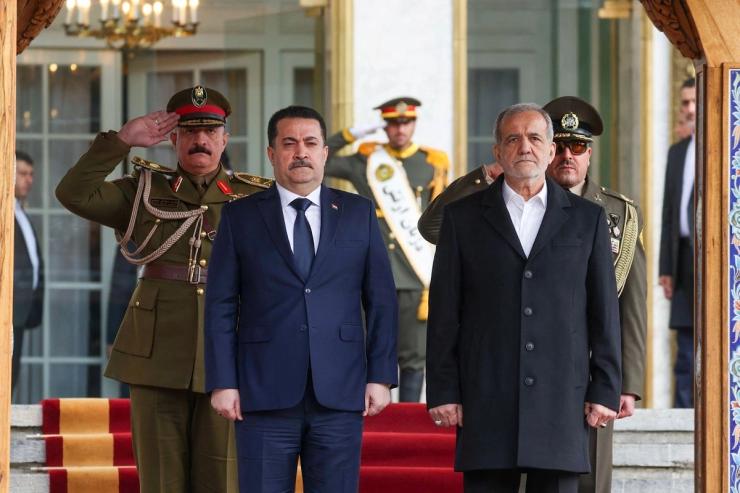The News
Iraq’s Prime Minister Mohammed Shia Al Sudani met with Iranian President Masoud Pezeshkian in Tehran on Wednesday, his first visit to the country since rebel forces in neighboring Syria ousted long-running dictator Bashar al-Assad.
Al Sudani reportedly received a message from US President-elect Donald Trump that emphasized the need for Baghdad to limit the influence of Iranian proxies operating within Iraq, Iraqi Shafiq News reported.
SIGNALS
Iran’s waning influence could make it more open to negotiations with the US
Iran was once a heavy hitter in the Middle East, but now holds an “exceptionally weak hand” in any future confrontation with the incoming Trump administration, The Wall Street Journal reported. A domestic energy crisis looms, and the weakening of its proxy groups Hezbollah and Hamas — plus the removal of its ally Bashar al-Assad in Syria — could push Tehran to negotiate a compromise with the West over sanctions, a Middle East expert at Chatham House said. Still, Iran’s long standing “fury” at Trump for ordering the assassination of General Qassem Soleimani during his first term is a key barrier to talks, as any move by the Iranian president to negotiate could easily be exploited by his rivals, a political scientist wrote for the Stimson Center.
Trump could recalibrate US approach to Tehran
Trump’s pick for national security adviser recently vowed to return to “maximum pressure” on enforcing sanctions against the Iranian regime, but Trump has himself said he is willing to strike a deal with Iran as long as it doesn’t seek a nuclear weapon, Bloomberg noted. Trump no longer has Iran hawks like former Secretary of State Mark Pompeo and former National Security Adviser John Bolton in his ear, which opens up the possibility of a “recalibrated” approach to Tehran that “prioritizes transactional agreements over ideological rigidity,” an international relations expert argued in Foreign Policy.



